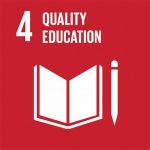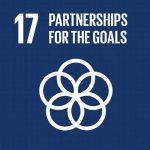
CESSAS Talk #5 hosted Dr. Tufan Kutay Boran from the University of Ankara, Turkey.
Dr Boran explores the role of Islamic political parties and Islamic organizations in the foreign policy-making process in Indonesia. He shared his investigation on when and under what conditions the Islamic political parties—established following Indonesia’s democratization—and Islamic organizations, which have gained greater access to political platforms, have become actively involved in foreign policy matters. For the purposes of this study, Nahdlatul Ulama and Muhammadiyah were selected as representative Islamic organizations, while PAN (National Mandate Party), PKB (National Awakening Party), and PKS (Prosperous Justice Party) were chosen as representative Islamic political parties. The findings indicate that the involvement of these actors in foreign policy, whether the issue is ideological or not, is closely linked to the dynamics of the pre- and post-democratization periods in Indonesia.

In his presentation, he further showed how political parties and Islamic organizations in Indonesia played an important role in the process of foreign policy formation from the early New Order to the post-reform era. He applied two main approaches: the statist model and the pluralist model. He explained that during the New Order era under Soeharto’s presidential era, the political system adopted a very centralized or static policy, limiting the space for Islamic organizations and policies. However, since the 1990s, changing domestic political conditions due to economic crises and internal conflicts forced the government to seek new legitimacy, one of which was through approaches to the Islamic community, such as the formation of the Indonesian Muslim Intellectuals Association (ICMI). This is what made the pluralist model of ecosystem accommodation slowly begin to take shape
Major changes occurred in the BJ Habibie era (1998 to 1999) with the abolition of the Single Principle and the opening of wide opportunities for the establishment of various new political parties. This period was the beginning of a significant transformation towards political pluralism that was strengthened by President Abdurrahman Wahid through the abolition of the ABRI Dwi Function and the implementation of a direct election system. Islamic organizations, such as NU and Muhammadiyah, began to play a significant role in public diplomacy, especially during the Megawati presidency, which faced post-9/11 global challenges. The administration of President Susilo Bambang Yudhoyono emphasized this pluralism, especially in the context of international issues such as the Iranian nuclear phenomenon in 2007. The Indonesian government’s initial stance in favor of the UN Security Council resolution against Iran received strong opposition from NU, Muhammadiyah, and several political parties, which eventually led the government to change its stance and choose to abstain from the next resolution in 2008. This clearly shows the strong influence of domestic actors on the country’s strategic decisions at the international level.
Dr Boran concluded that the involvement of political parties and Islamic organizations has significantly boosted the process of pluralism in Indonesia’s foreign policy. This engagement shows how domestic groups can influence the direction of the country’s international policy through political pressure and public opinion, reflecting the important shift from a centralized regime to a more democratic and pluralist system after reformation.
To be noted, participants – especially international young scholars – were well engaged during the Q&A session.
Reporter: Bill Sean Saragih
Editor: Mellyana Nungki Pramitha


